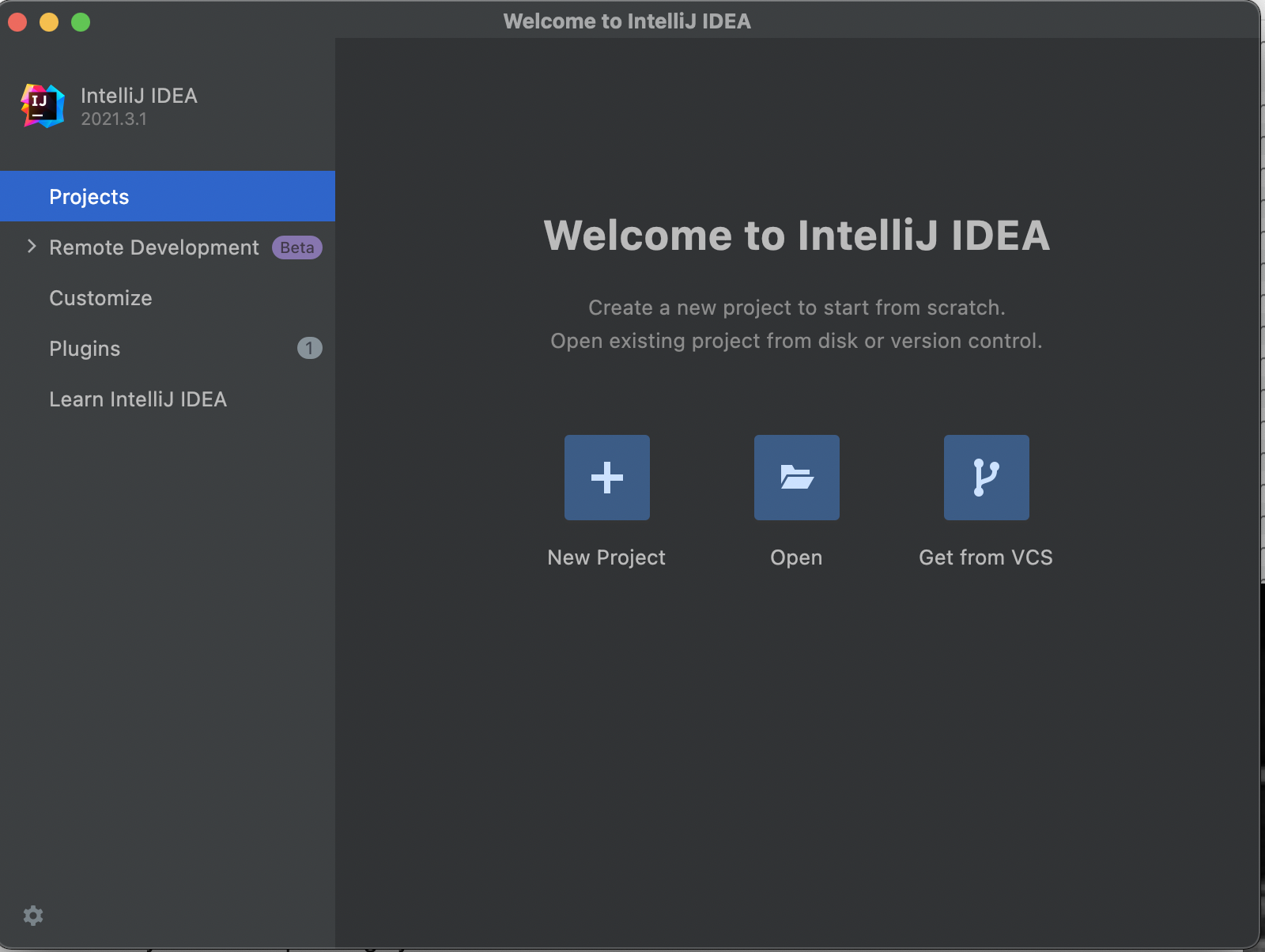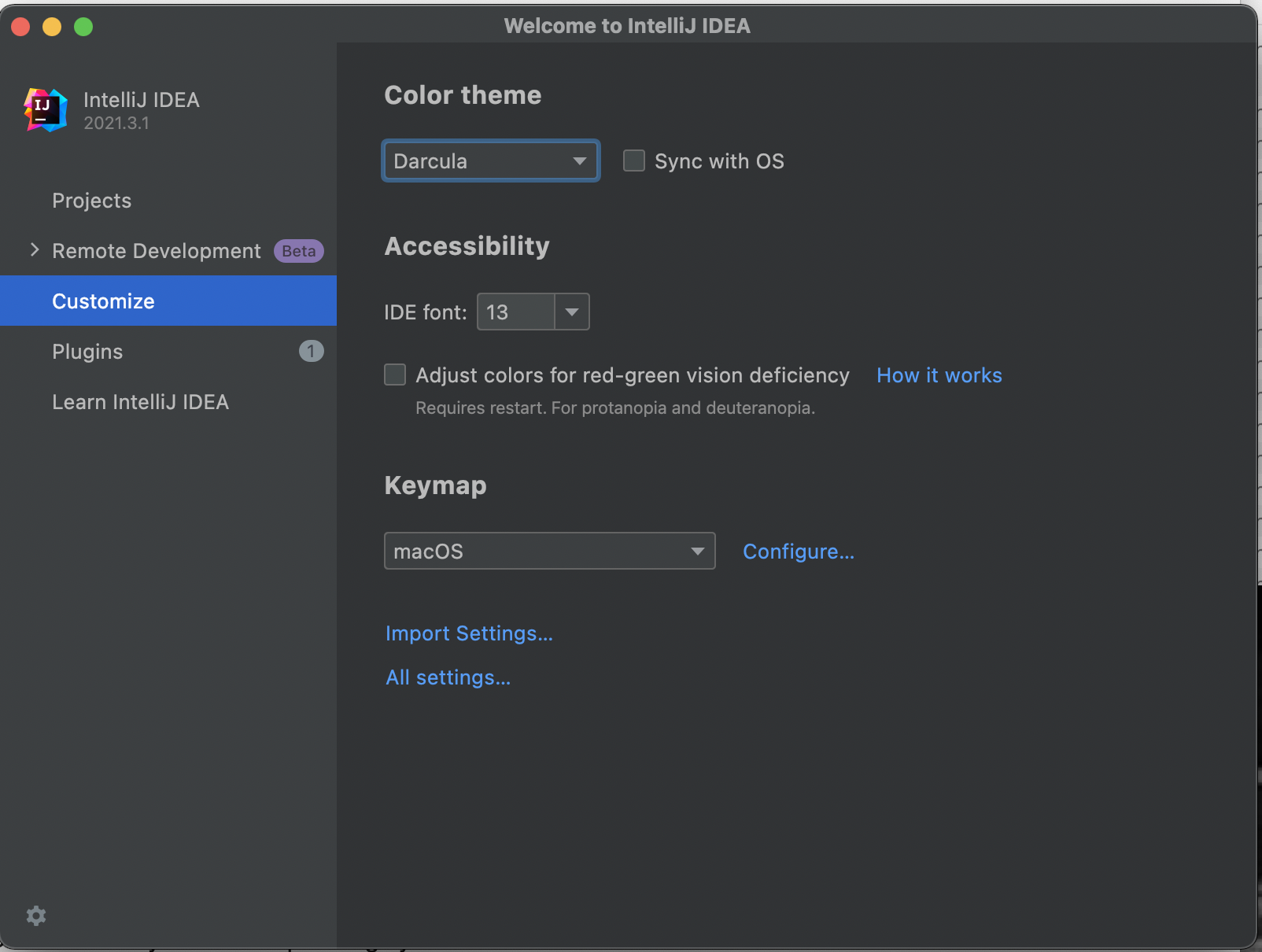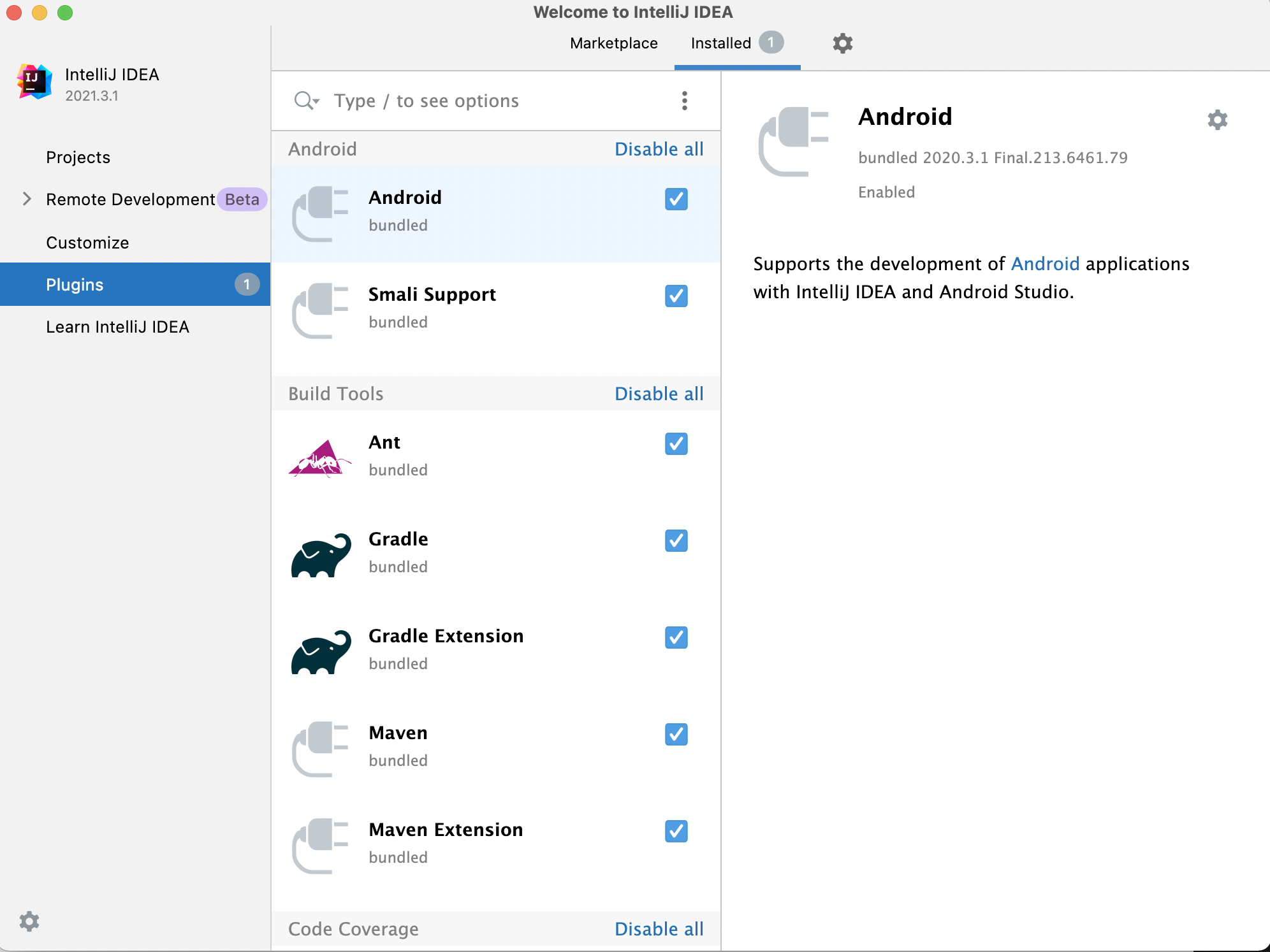E21: Install IntelliJ IDEA
1. Sign up for a JetBrains student license
Go to https://www.jetbrains.com/student/ and click the apply button to obtain a free student license for IntelliJ IDEA.
2. Download IDEA
Download the latest release of the “Ultimate” edition from the download page.
Upon startup, it will ask you for your JetBrains login credentials in order to verify your license.
Following that, it will ask you if you want to import prior settings if you have any. I recommend you install (or reinstall) from scratch.
3. General Configuration
3.1 Startup tab
The following image illustrates the first screen that will generally appear when you startup IntelliJ IDEA for the first time:
3.2 Customize tab
You can ignore the “Remote Development” tab for now, and skip to “Customize”:
Make whatever selections you want on this screen, then go to the “Plugins” tab:
3.3 Plugins tab
Click on the “Installed” tab to see the list of installed plugins.
You can, if you like, stick with the default set of plugins, but many of them are not necessary for this class and could increase the startup time for IntelliJ.
My personal preference is to disable many of the plugins. They are organized into categories, and each category has a “disable all” button. Here are the categories of plugins that I disable:
- Android
- Build Tools
- Code Coverage
- Database
- Deployment
- JVM Frameworks
- Kotlin Frameworks
- Microservices
- Plugin Development
- Remote Development
- Swing
- Template Languages
- Test Tools
- Other Tools
Of course, you can always re-enable them later.
The only plugins I recommend you enable for this class are:
- HTML
- CSS
- Javascript
- Git
- GitHub
4. Load the ICS SE Code Style preferences
Download the class code style preferences file from ics-se-code-style.xml.
Under Preferences > Editor > Code Style, click the “Manage” button, then “Import”, then select IntelliJ IDEA code style XML, then select the ics-se-code-style.xml file from your local file space and import it.
You will now have a new code style called ics-se-code-style that conforms to our class code style conventions.
5. Enable soft wrap
“Soft wrap” allows you to resize your screen and still see all text, and eliminates the need for horizontal scrolling.
To enable this, under Preferences > Editor > General, scroll to the “Soft wraps” section, and then:
- Check “Soft wrap files”
- Add a single “*” to the associated text field to specify that all files should be soft wrapped.
- Check “Show soft wrap indicators for current line only”
Click OK to save your changes.
6. Verify startup time < 10 seconds
After configuration, quit IDEA, then time how long it takes for it to start up on your platform. It should take less than 10 seconds (on my Mac, it takes 5 seconds). It is important to make sure that your IDE loads in less than 10 seconds, otherwise you will be tempted to use a different editor for “simple” tasks.
If, after following the above instructions, IntelliJ loads too slowly, you can consult IntelliJ diagnose startup delays for ideas on how to proceed.
(Optional) MacOS configuration
Unfortunately, you need to do a little customization on a Mac to get all of the keyboard shortcuts working as advertised. Please see MacOS Keyboard Configuration for IntelliJ for details.
Submission Instructions
To be completed by the time and date indicated on the Schedule page. Submit a screenshot IntelliJ IDEA after it loads from step 6 and indicate how many seconds it took to load.


